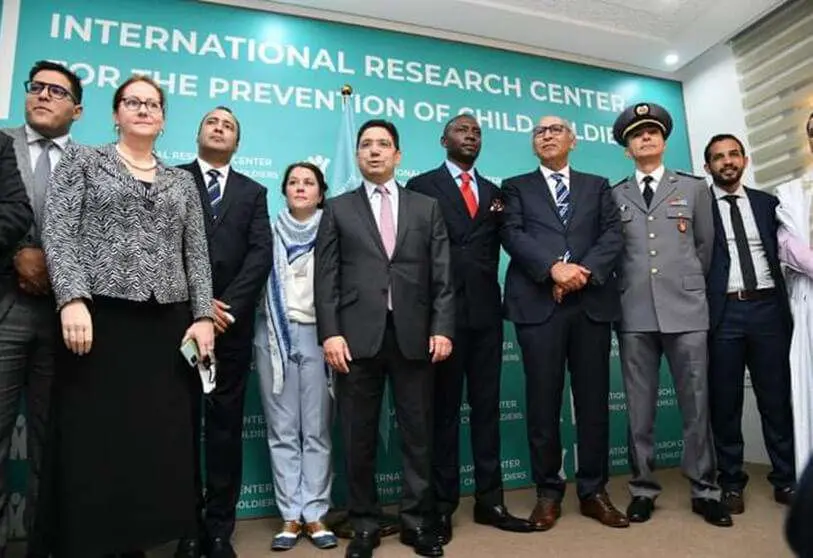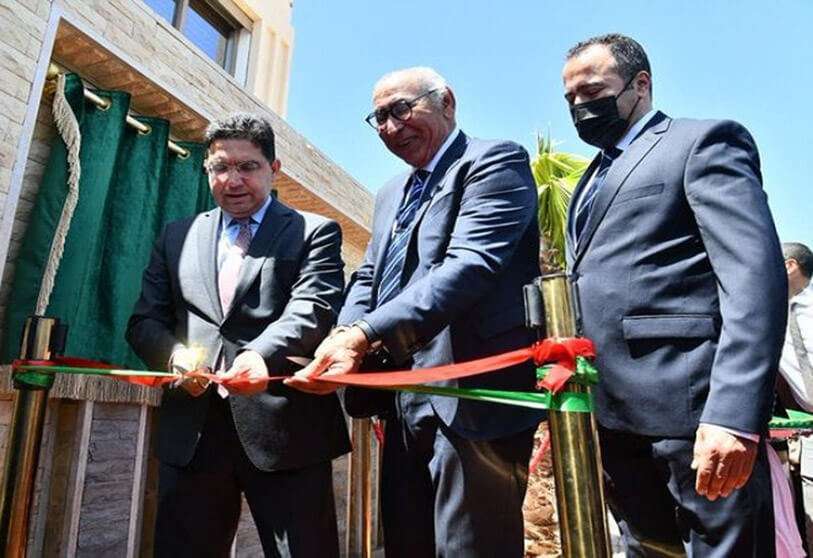Inauguración en Dajla del Centro Internacional de Investigación sobre la Prevención de los Niños Soldado

The International Research Centre for the Prevention of Child Soldiers was inaugurated on Thursday, March 31, in Dakhla. The event was attended by the Minister of Foreign Affairs, African Cooperation and Moroccans Residing Abroad, Nasser Bourita, the Wali of the region of Dakhla Oued-Eddahab, Lamine Benomar, and the president of the centre, Abdelkader Filali, as well as several experts and researchers from countries such as the United States, France, Mali and Cameroon. The aim of the centre is reportedly to provide accurate data to formulate coordinated action and to inform the academic and research community on the complicated issue of child soldiers.
This positive news undoubtedly contrasts with the shameful spectacle experienced recently during the visit to the Tindouf camps by the new UN special envoy for the Sahara, Staffan de Mistura. As reported by several media outlets and publicly denounced, the guest of honour was treated to nothing less than a children's military parade in front of the eyes of De Mistura himself. Undoubtedly an unfortunate way to begin relations with one of the parties in this dispute that is half a century old.
Incidentally, a curious way of throwing stones at your own backyard. The person who devised such a nonsense did his own people a disservice, not only because of its immorality, but also because of the image given in strategic terms to an authority that you are trying to seduce with arguments more solid than a military parade of children as a show of force, while simultaneously ignoring all kinds of international human rights provisions that strictly prohibit the forced recruitment of minors and the use of weapons by them.
We knew that the Polisario was capable of something like this - it has boasted of this ignominious initiative many times before and we denounced it at the time, but we did not expect them to reach the height of their brazenness by consummating it in front of none other than the new UN special envoy for the Sahara, in violation of international humanitarian law, which categorically prohibits their recruitment, enlistment and direct participation in any kind of hostility in accordance with the Facultative Protocol to the Convention on the Rights of the Child.

In contrast to this, the Moroccan Sahara has taken a diametrically opposed step with the opening of this centre. At the opening conference, Bourita himself stated that "the choice of Dakhla to host the International Centre for Research on the Prevention of Child Soldiers is a recognition of Morocco's role as a provider of peace, security and stability". He stressed that today more than 460 million children live in a conflict zone and more than 15% of child soldiers are girls, underlining that this phenomenon is not exclusive to Africa. "Child soldier should be an oxymoron. 'Child' and 'soldier' cannot and should never go hand in hand. The place of children is in school and not among armed groups and militias". In this sense, he recalled the involvement of the Polisario referred to above by stating categorically that "the indoctrination and enlistment of children by the armed militias of the Polisario constitutes an inhuman crime, and a denial of the elementary rights of the children recruited. The enlistment of children is forced by the Polisario and encouraged by Algeria, in the Tindouf camps, fuelling instability in North Africa and the Sahel".
Morocco's role in this field is also notable in terms of its commitment to international law, as the Kingdom ratified the facultative protocol to the Convention on the Rights of the Child on 22 May 2002, concerning child soldiers. Thus, the Moroccan government undertook at the opening of the centre to implement the provisions of the Convention and those of the Facultative Protocol and to ensure the harmonisation of Moroccan legislation with its principles.
In addition, there are mechanisms and instruments for the protection of children against all forms of abuse, exploitation, violence and organised crime, such as the National Observatory for the Rights of the Child, created in 1995, and where Morocco adopted in 2020 the Vancouver principles on peacekeeping and the prevention of the recruitment and use of child soldiers.









